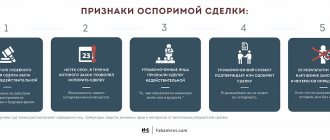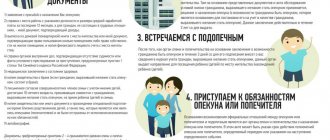How to privatize an apartment in 2021?
1. GENERAL PROVISIONS
1.1. This Privacy Policy regarding the processing of personal data of users of the site https://www.dvitex.ru/ (hereinafter referred to as the Privacy Policy) was developed and applied by Legal LLC, OGRN 1107746800490, Moscow, per. Golutvinsky 1st, building 3-5, office 4-1 (hereinafter referred to as the Operator) in accordance with paragraphs. 2 hours 1 tbsp. 18.1 of the Federal Law of July 27, 2006 No. 152-FZ “On Personal Data” (hereinafter referred to as the Law on Personal Data).
1.2. This Privacy Policy defines the Operator’s policy regarding the processing of personal data accepted for processing, the procedure and conditions for the processing of personal data of individuals who have transferred their personal data for processing to the Operator (hereinafter referred to as personal data subjects) with and without the use of automation tools, establishes procedures aimed at preventing violations of the legislation of the Russian Federation, eliminating the consequences of such violations related to the processing of personal data.
1.3. The privacy policy was developed to ensure the protection of the rights and freedoms of personal data subjects when processing their personal data, as well as to establish the responsibility of the Operator's officials who have access to the personal data of personal data subjects for failure to comply with the requirements and standards governing the processing of personal data.
1.4. Personal data of the Personal Data Subject is any information relating to a directly or indirectly identified or identifiable individual.
1.5. The Operator processes the following personal data of Users:
- Full Name;
- E-mail address;
- Phone number;
- other data necessary for the Operator when providing services to Users to ensure the functioning of the Site.
1.6. The Operator processes personal data of Personal Data Subjects for the following purposes:
- providing the opportunity for feedback from Operator Specialists on User requests;
- providing the possibility of online payment for services ordered on the Site;
- ensuring the fulfillment of the Operator’s obligations to Users;
- for market research purposes;
- informing the Personal Data Subject about promotions, competitions, special offers, new services, discounts, advertising materials and other services, as well as receiving commercial or advertising information and free products, participating in exhibitions or events, performing marketing research and notification of all special initiatives for clients;
- statistical purposes;
- for other purposes, if the corresponding actions of the Operator do not contradict the current legislation, the activities of the Operator, and the consent of the Personal Data Subject has been obtained for the said processing.
1.7. The operator processes personal data of personal data subjects by performing any action (operation) or set of actions (operations) performed using automation tools or without the use of such means, including the following:
- collection;
- record;
- systematization;
- accumulation;
- storage;
- clarification (update, change);
- extraction;
- usage;
- transmission (distribution, provision, access);
- depersonalization;
- blocking;
- deletion;
- destruction.
2. PRINCIPLES FOR PROCESSING PERSONAL DATA
2.1. When processing personal data, the Operator is guided by the following principles:
- legality and justice;
- confidentiality;
- timeliness and reliability of obtaining the consent of the subject of personal data for the processing of personal data;
- processing only personal data that meets the purposes of their processing;
- compliance of the content and volume of processed personal data with the stated purposes of processing. The personal data processed should not be redundant in relation to the stated purposes of their processing;
- the inadmissibility of combining databases containing personal data, the processing of which is carried out for purposes incompatible with each other;
- storing personal data in a form that allows identifying the subject of personal data for no longer than required for the purposes of processing personal data;
- destruction or depersonalization of personal data to achieve the goals, their processing or in case of loss of the need to achieve these goals.
2.2. The processing of personal data by the Operator is carried out in compliance with the principles and rules provided for:
- Federal Law of July 27, 2006 No. 152-FZ “On Personal Data”;
- This Privacy Policy;
- Universal Declaration of Human Rights 1948;
- International Covenant on Civil and Political Rights 1966;
- European Convention for the Protection of Human Rights and Fundamental Freedoms, 1950;
- The provisions of the Convention of the Commonwealth of Independent States on Human Rights and Fundamental Freedoms (Minsk, 1995), ratified by the Russian Federation on August 11, 1998;
- The provisions of the Okinawa Charter for the Global Information Society, adopted on July 22, 2000;
- Decree of the Government of the Russian Federation dated November 1, 2012 No. 1119 “On approval of requirements for the protection of personal data during their processing in personal data information systems”;
- Order of the FSTEC of Russia dated February 18, 2013 No. 21 “On approval of the composition and content of organizational and technical measures to ensure the security of personal data when processed in personal data information systems”;
- Other regulatory and non-regulatory legal acts governing the processing of personal data.
3. OBTAINING PERSONAL DATA.
3.1. Personal data of personal data subjects is obtained by the Operator:
- by providing the subject with personal data when registering on the Site, when submitting applications, applications, questionnaires, forms, filling out registration forms on the Operator’s website or sending by e-mail, messages by telephone to the Operator’s support service;
- by other means that do not contradict the legislation of the Russian Federation and the requirements of international legislation on the protection of personal data.
3.2. The Operator receives and begins processing the Subject’s personal data from the moment of receiving his consent.
3.3. Consent to the processing of personal data is given by the subject of personal data from the moment of starting to use the site, including by indicating about, through the performance of implied actions by the subject of personal data.
3.4. The subject of personal data may at any time withdraw his consent to the processing of personal data. To revoke consent to the processing of personal data, you must submit a corresponding application to the Operator via available means of communication. At the same time, the Operator must stop processing them or ensure the termination of such processing and, if the preservation of personal data is no longer required for the purposes of their processing, destroy personal data or ensure their destruction within a period not exceeding 30 (Thirty) days from the date of receipt of the specified review .
3.5. If the Personal Data Subject withdraws consent to the processing of personal data, the Operator has the right to continue processing personal data without the consent of the Personal Data Subject only if there are grounds specified in the Personal Data Law.
3.6. The subject of personal data has the right to choose what personal data will be provided to him. However, in case of incomplete provision of the necessary data, the Operator does not guarantee the subject’s ability to use all services and products of the Site, to use all services of the Site.
3.7. The personal data subject can view, update or delete any personal data included in his profile at any time. To do this, he can edit his profile online in his personal account or send an email to
4. PROCESSING PROCEDURE FOR PERSONAL DATA
4.1. The operator takes technical, organizational and legal measures to ensure the protection of personal data from unauthorized or accidental access, destruction, modification, blocking, copying, distribution, as well as from other unlawful actions.
4.2. When processing personal data, the Operator applies legal, organizational and technical measures to ensure the security of personal data in accordance with Art. 19 of the Federal Law “On Personal Data”, Decree of the Government of the Russian Federation dated November 1, 2012 No. 1119 “On approval of requirements for the protection of personal data during their processing in personal data information systems”, Methodology for determining current threats to the security of personal data during their processing in personal information systems data approved by the FSTEC of the Russian Federation on February 14, 2008, Methodological recommendations for ensuring the security of personal data using crypto-means when processing them in personal data information systems using automation tools approved by the FSB of the Russian Federation on February 21, 2008 No. 149/54-144.
4.3. To authorize access to the Site, a Login and Password are used. The subject of personal data is responsible for the safety of this information. The subject of personal data does not have the right to transfer his own Login and Password to third parties, and is also obliged to take measures to ensure their confidentiality.
4.4. When transferring personal data, the Operator complies with the following requirements:
- does not disclose the personal data of the subject of personal data to a third party without expressed consent, except in cases where this is necessary for the purposes of processing personal data, preventing a threat to the life and health of the subject of personal data, as well as in cases established by law;
- does not disclose personal data for commercial purposes without the expressed consent of the subject of personal data;
- informs persons receiving personal data that this data can only be used for the purposes for which it was communicated, and requires these persons to take appropriate measures to protect personal data. Persons receiving the User’s personal data are required to maintain confidentiality;
- allows access to personal data only to authorized persons, and these persons must have the right to receive only those personal data that are necessary to perform specific functions.
4.5. The Operator has the right to disclose any information collected about the User of this Site if disclosure is necessary in connection with an investigation or complaint regarding unlawful use of the Site, or to identify (identify) a User who may violate or interfere with the rights of the Site Administration or the rights of other Site Users, as well as to comply with the provisions of current legislation or court decisions, ensure compliance with the terms of this Agreement, protect the rights or safety of other Users and any third parties.
4.6. Third parties independently determine the list of other persons (their employees) who have direct access to such personal data and (or) process it. The list of these persons, as well as the procedure for access and/or processing of personal data by them, is approved by the internal documents of the Third Party.
4.7. The operator does not sell or provide personal data to third parties for marketing purposes not provided for in this Privacy Policy, without the express consent of the personal data subjects. The operator may combine anonymized data with other information received from third parties and use it to improve and personalize services, content and advertising.
4.8. Processing of personal data is carried out on the territory of the Russian Federation; cross-border transfer of personal data is not carried out. The operator reserves the right to choose any channels for transmitting information about personal data, as well as the content of the transmitted information.
4.9. Personal information collected online is stored by the Operator and/or service providers in databases protected by physical and electronic controls, access control technology and other appropriate security measures.
4.10. The personal data subject understands, confirms and agrees that the technical processing and transmission of information on the Operator’s Website may involve the transfer of data over various networks, including unencrypted communication channels on the Internet, which is never completely confidential and secure.
4.11. The personal data subject also understands that any messages and/or information sent through the Operator’s Server may be unauthorized read and/or intercepted by third parties.
5. FINAL PROVISIONS
5.1. In the event of any disputes or disagreements related to the implementation of these Rules, the Personal Data Subject and the Operator will make every effort to resolve them through negotiations between them. If disputes are not resolved through negotiations, disputes shall be resolved in the manner established by the current legislation of the Russian Federation.
5.2. This Privacy Policy comes into force for the Personal Data Subject from the moment he starts using the Operator’s Website and is valid for an indefinite period.
5.3. This Privacy Policy can be changed and/or supplemented by the Operator at any time during the validity period of the Rules at its discretion without the need to obtain the consent of the Personal Data Subject. All changes and/or additions are posted by the Operator in the appropriate section of the Site and come into force on the day of such posting. The subject of personal data undertakes to promptly and independently familiarize himself with all changes and/or additions. If the Personal Data Subject does not agree with the changes made, he is obliged to refuse access to the Site and stop using the materials and services of the Site.
Privatization: pros, cons
Registration of ownership of an apartment or house, like any other procedure, has pros and cons. Among the advantages of privatization it is necessary to highlight:
- the person becomes a full owner of the home;
- the owner of the apartment can register other persons;
- has the right to rent, sell, exchange real estate;
- Housing cannot be taken away from the owner.
Even if the owner of the apartment leads a lifestyle that disturbs the neighbors, there is no right to take the housing. Under such circumstances, the person is simply evicted through the court, and the apartment is sold at public auction. It is noteworthy that the money received from the sale of housing is returned to the former owner.
Disadvantages of privatization:
- the homeowner must pay personal property tax;
- For the owner of an apartment, the cost of utilities is higher.
We can conclude that there are not many disadvantages. Having gone through the privatization procedure once, a person receives many rights. An apartment with privatization in Moscow is decent capital, which, if desired and necessary, can be turned into money. In addition, the housing that a person receives under the terms of social rent can be replaced at any time by another or taken away altogether. Privatization is beneficial for those people who dream of becoming real owners, and not just employers.
About 20% of Russians still cannot decide on the privatization procedure for various reasons. Some doubt the necessity of the process, others are afraid of pitfalls due to legal illiteracy, others cannot come to an agreement with relatives living in the same apartment, and others simply do not want to stand in lines and deal with paperwork. Let's see what other reasons there is no need to rush into housing privatization.
Privatization is not beneficial for everyone. Single people with limited funds have no reason to become owners, since maintaining housing will cost them a pretty penny. It is much more profitable for such categories of citizens to simply pay the cost of utilities to the employer. It is also not profitable for residents of communal apartments to privatize housing. There is almost no hope of selling it, but there is hope of improving living conditions at the expense of the state.
When privatizing an apartment, it is worth remembering that the owner of the property takes full responsibility (along with other owners living in the same house) for the condition of the building, adjacent areas, as well as common areas (elevators, stairs, attics, etc.) . All costs for the maintenance, maintenance and repair of the building and premises are borne by the apartment owners.
The owner himself is responsible for the destruction of property belonging to the owner. That is, if an apartment, for example, suffers from a fire, even for reasons beyond the control of the owner, then the state will not be obliged to compensate for the losses.
True, if the apartment, which is the only place of residence, becomes uninhabitable, then a person can count on receiving temporary space from the social maneuver fund.
According to current legislation, the state pays compensation only if privatized housing was damaged as a result of an emergency. It is interesting that the concept of “emergency situation” is not clearly defined in the documents. This is definitely not a fire or a gas explosion in the entrance. As a rule, hurricanes, earthquakes, tsunamis and other natural disasters are considered emergencies. The legislation also does not mention methods for calculating compensation.
Taking out an insurance policy for a privatized apartment is the best guarantee that the owner will not be left on the street if something happens to the home.
Comparison Characteristics
| Peculiarity | The term “privatization” thoroughly entered our lives in 1991. It was from this moment that the all-Russian re-registration of state property began. Legal relations are regulated by Federal Law No. 1541-1 “On Privatization...”. Privatization is the transfer of municipal (state) property into private hands. Tenants of residential premises who live in apartments under a social tenancy agreement have the right to privatization. If this is a land plot - a lease agreement or an act of transfer of land for indefinite use. Based on these documents, a person has the right to become the owner of real estate. |
| Who is the owner | The owner of housing and land is initially the state. But according to general rules, property is transferred to the disposal of municipalities. Service apartments and dormitories may be owned by the Ministry of Defense, enterprises and individual firms. After privatization, ordinary citizens become the owner of housing or land plots. For example, on the right of shared ownership. |
| pros | 1. No payment for the purchase of real estate - privatization is considered a free and open-ended procedure. 2. The ability to register and register any person without the consent of the municipality. 3. The owner of a registered apartment cannot be evicted for debts. The maximum that a defaulter faces is legal proceedings. 4. The owner of a privatized apartment has the right to sell, rent, exchange, bequeath, donate, pledge and other transactions with property. 5. Receipts for payment of utility bills do not contain a line of expenses for the use of municipal property. |
| Minuses | 1. The obligation to bear the costs of maintaining the apartment. 2. Payment of annual property tax. 3. Expenses for major home repairs. 4. Virtual lack of choice (you are unlikely to be allowed to privatize a 3-room apartment in the city center). |
Basic principles of privatization
And in accordance with the law of the Russian Federation “On the privatization of housing stock in the Russian Federation”, the main principles of the transaction are:
- Voluntariness
- Free
- Disposability
No one has the right to force people to register their home ownership. Even if the whole family decides to privatize the apartment, and one of its members is against this action, it will not be possible to conclude a deal. Officially, no one will force a person.
As for the second point, free privatization in our country was extended many times: in 2007, 2010 and 2013. Recently, deputies decided on the unlimited free privatization of housing to preserve the main principles of modern housing policy in Russia.
By one-time privatization we mean that each person has the right to take part in the procedure only once. That is, if the owner decides to deprivatize the housing, then it will not be possible to privatize the apartment a second time.
However, if the apartment is transferred into the ownership of only some people living in it, then the person who renounced his share in favor of other persons has the right to privatize another residential premises. Minor citizens who are already owners of occupied housing also retain this right.
Forms of privatization
The concept of “privatization” is not always used with the same value. Sometimes the transformation of enterprises or areas of activity from the state is confidentially called privatization, even if the shares of these companies continue to remain entirely owned by the state.
In a narrower sense, privatization occurs only when the state ceases to be the main owner, and as the purchasers or owners of the people's shares or enterprises with a predominant act of private capital. There are various ways of transferring property rights from the hands of the state to the hands of the people. The choice of this or that path depends on political, economic and social facts, and also on the priorities in each particular country.
In a narrower sense, privatization occurs only when the state ceases to be the main owner, and as buyers or owners of shares or enterprises with a predominant act of private capital
Formal privatization. This form of privatization takes the transfer of a state-owned enterprise in the form of private law. This may occur as a general or private succession. Formal privatization does not change anything in property relations, or in the capital endowment of the enterprise, or in access to technical knowledge or organizational resources. During the implementation of formal privatization, the tasks of the state are not defined again.
To implement these tasks, the state uses private law instruments. Here it is also possible to talk about organizational privatization, in which there are no significant changes in the distribution of tasks between the state and people. In such cases, formal privatization is seen as a necessary preparatory step for carrying out significant privatization.
Real privatization
Real privatization. Talk about real privatization in this case, when a state-owned enterprise will be sold to a private strategic investor. This form of privatization occurs primarily at the municipal level and has four main forms:
- products - services made by state-owned enterprises are replaced by products - services of other enterprises;
- Using the so-called “contract system”, the private seller provides the government body with certain paid services that are absorbed directly to the population;
- using the “preferential model”, a private enterprise gives services to citizens who have paid for them;
- in the case of using a “control system”, the state places checks financed by tax revenues, which can be done through calculations with any supplier enterprises.
Open and limited tender
Open and limited tender. Through its extremely open method it is possible to cover a wide range of potential investors. In the case of an investor's choice, price is not of paramount importance; also other criteria may play an important role. Unlike mass privatization, a significant influx of capital can occur here.
The purpose of the auction is to sell the enterprise at the highest price
Auction
The goal of this method is to sell the company at the highest price. At the same time, the characteristics or profile of investors are not considered.
Direct sale
For strategic reasons, preference is given to negotiating directly with certain investors.
The most important role is played here by the correct determination of the real value of the enterprise. “Management Buyout”: This form of privatization occurs when an enterprise or part of an enterprise transfers its management. “Management Buys Shares”: talk about this form of privatization where a business will be bought by a management company.
In this case, the new owners carry out a complete or partial change in the former management. Privatization is accompanied by many combined events, such as unbundling, restructuring, enterprise valuation, search for investors, changes in anti-monopoly law and the introduction of actions in the social sphere.
Carrying out re-privatization
As already written above, each citizen has the right to participate in privatization only once. That is, you cannot privatize another apartment if a citizen has already participated in the process once. But here there are additional nuances.
- If at the time of privatization a person has not yet reached the age of majority, then he has the right to organize the procedure free of charge upon reaching the age of 18.
- You can register housing for your children if the procedure needs to be done again.
The issue of so-called deprivatization deserves special consideration. This is the name given to the procedure in which housing, previously privately owned, is returned to the state.
This solution is relevant for owners who cannot cope with the increased costs of maintaining their housing.
That is why it is advised to carry out privatization only after a competent assessment of the available opportunities. Moreover, even after deprivatization, a person does not have the right to participate in free registration of housing ownership. It is believed that the right was used once anyway.
One person is prohibited from taking part in privatization twice. But for apartments this is quite possible. This is relevant if one of the family members was registered in the apartment, but did not use their right for a long time for one reason or another.
What will the cost of the procedure be?
Free privatization means that residents do not pay additional fees for their square meters. Considerable funds are required just to get started and to complete all the necessary documents. After all, each of the documents drawn up in the BTI and Rosreestr has its own cost.
- Payment for real estate services, if they are used, depends on the specific agreement. But more often it is at least 14-15 thousand rubles.
- If there are unauthorized redevelopments, you will have to go to court. Which will add another 12-15 thousand rubles to the cost of registration.
- The average price of privatization is 20 thousand rubles, if no complications arise in the process.





